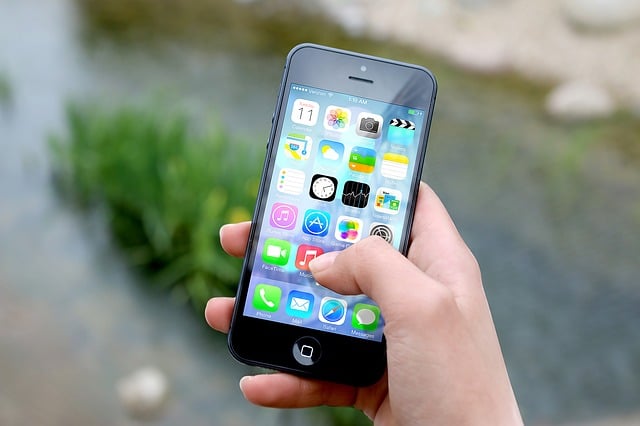Jasmine Birtles
Your money-making expert. Financial journalist, TV and radio personality.


Smartphone contracts aren’t cheap, let’s be honest. There are lots of ways to reduce the cost of your smartphone, though – from upgrading more often to going paperless, we’ve got a bunch of tips to help!
Read our top tips to reduce the cost of your smartphone and put some cash back in your pocket…
Despite the standard two-year phone contract, 47% of people hang on to their smartphone for at least three years – and 8% wait 5 or more years to change. That’s not a problem if they switch to a SIM-Only contract after their initial contract ends – but many don’t.
So if you’ve been paying £25–30 a month for more than a couple of years then it may be that you’re due a brand-new handset.
Although you’ll get a new phone, it’s likely you’ll have to sign up for another contract which will range from 12 months to three years.
This is a bit of a commitment, so make sure it’s worth the money you’ll pay, but it ensures you get a shiny new mobile without paying upfront.
Don’t be afraid to shop around and leave open the option of switching networks if one comes back at a cheaper price. You can keep your number if you do decide to leave.

 Don’t hang around waiting for your provider to offer you a better deal – you’ll be waiting a long time if you do!
Don’t hang around waiting for your provider to offer you a better deal – you’ll be waiting a long time if you do!
Call up and try haggling with your current provider – you’ve nothing to lose and they may be able to better their offer.
Remember – they need you a lot more than you need them and they’d rather you paid a bit less but stayed with them than you went to one of their competitors.
It’s also worth contacting other networks for a good deal. You don’t owe your mobile provider any loyalty so have a look and see if you can do better elsewhere.
If you do decide to go with another provider, before you switch always check the new network’s coverage in your area. This can be particularly patchy in some rural areas and you don’t want to sign up for three years and discover you can’t use the phone at home!
Don’t put it off! Shop around online to find the best deal – then call your provider to see if they can match (or even better) the offer.
Find out how to make money recycling your mobile here.
A mobile phone reseller is a company which offers mobile phone deals. Basically, the retailer will sell phone contracts that it has already bought from the mobile phone company (ones that have been sent back, for example) complete with data/texts/minutes for a reduced price. How do they make it work? The reseller buys the phone at a much lower price, so that’s how they’re able to offer it to you at a discounted rate.
The best place to go for this is a comparison website such as Uswitch. It will scan the mobile phone companies and the resellers, such as BuyMobiles and Mobiles.co.uk, to find you a list of deals. Check out this one for the iPhone 8.
You can check the websites out before buying as they may have even better offers on their website. Signing up to their emails will also help you get the best deal.
Sometimes there will be offers for a handset which has already been purchased and used – these are called refurbished devices. It’s the same handset except essential components are replaced so it works as new. This will bring down the cost of the main smartphones, usually considerably so. The reseller websites usually offer these so check them out.
 The average Brit tends to use only 20-30% of their usage and overspends by £200 per year.
The average Brit tends to use only 20-30% of their usage and overspends by £200 per year.
You can check your usage on a site called Billmonitor which then matches the ideal contract for your needs.
When your contract ends, it might be worth keeping your handset and going SIM-only.
If you’re waiting for a new phone to come out, you might be able to get a SIM for £5 a month.
Or SIM-only deals with companies such as Giffgaff offer texts, minutes and data usage for as little as £10-15 a month in ‘bundles’ you buy every 30 days. Or iD Mobile, run by the Carphone Warehouse, offers SIM-Only 30-day rolling contracts for as little as £6 per month.
If your heart’s set on an expensive phone such as the new iPhone, it can be more economical to buy the handset and then sign up for a cut-price SIM-only deal rather than entering into a contract with a major network.
When weighing up SIM-only options, look for plans that combine flexible contract lengths with price stability and useful extras like EU roaming and strong international minutes. Many consumers find value in providers that lock prices for a set period and offer eSIM-ready, 5G-capable bundles so you’re not caught out by mid-contract hikes — searching for sim only deals uk can help surface these features. Also check whether a plan lets you set spend caps or upgrade mid-term, which can give extra control if your usage spikes. These practical checks make it easier to keep running costs low while still getting the coverage you need.
It’s definitely worth doing your sums before you sign up.
Find out how to get the best pay as you go deals here.
 A foreign trip can incur all sorts of unexpected charges!
A foreign trip can incur all sorts of unexpected charges!
Before you go, contact your mobile provider and check the rates for calls, texts and data usage in the country you’re visiting.
They may also have a special deal for international usage if you can’t altogether avoid using your phone abroad.
You should always ensure that data roaming is switched off in your phone’s settings, otherwise you may get a nasty surprise in your next month’s bill.
If you need to use the internet whilst you’re away, make use of Wi-Fi hotspots – often these are free of charge in hotels, restaurants and cafes.
You can also reduce the cost of your smartphone bill when you’re abroad with apps such as WhatsApp. These can be used for sending free texts over the internet instead of incurring charges for international text messages.
Tip: Most phone operators allow roaming in Europe in with whatever your UK deal offers at no extra cost. It’s worth phoning or going into your operator store to check (but we don’t know if this will be the case once the UK has left the EU).
Apparently 15% of people have dropped their phone down the toilet!
If you have butter fingers, it’s definitely worth getting your smartphone insured, especially if it’s an expensive model.
Don’t do it through your mobile phone provider, though, there are better deals to be had with Insurance2go.
Also, if you have home insurance, you should be able to add it to that for less than you would with a standalone deal.
You should be able to insure a smartphone for around £20-30 a year.
Remember to buy a case for it too, so it’s protected from scratches and damage (and you’ll get the best price if you want to sell it later).
For more more information on how to choose the best insurance deals click here.
 You’ve probably heard the horror stories – kids racking up bills of thousands of pounds without their parents realising until it’s too late.
You’ve probably heard the horror stories – kids racking up bills of thousands of pounds without their parents realising until it’s too late.
Make sure that you’re protected against such purchases.
So-called ‘freemium’ games cost nothing to download but include in-app purchases which are often disguised as pop-ups or notifications on the screen.
Older kids may know they’re not meant to make purchases but younger children will have no idea that they’re spending their parents’ real money – they just like pressing buttons!
First of all, you need to ensure that your phone has a lock – often a four figure code – and that you change it often. (Children are remarkably good at working out the code by watching you put it in).
You also need to ensure that before an in-app purchase can be made, you must provide a password.
Of course the best way to safeguard your phone against your kids is to stop them playing with it.
If your network charges for paper bills, get them online instead.
For example, Vodafone charge £1.54 for paper bills to be sent, so that’s over £18 back in your pocket for very little effort.
If you’ve upgraded to a new handset, make sure you get the best deal for your old mobile phone rather than just chucking it in a drawer.
Sometimes your network will offer an amount for the handset, but you might get a better offer on websites such as Envirophone, Mazuma or Top Dollar Mobile.
Our mobile recycling tool compares all these companies to find you the very best price for your phone – take a look here.
Mobile recycling is so simple.
You enter the details about your mobile phone – its model, condition and whether it’s in good working order and the recycling company offers you a price.
If you decide to accept the offer, they post you a jiffy bag to send off the phone in. The postage is normally paid and the whole transaction takes less than a week.
Sometimes older phones, such as the 1980s ‘brick’ handsets, can be collectors’ items, so it’s worth having a look on eBay to see how much they sell for.

Thanks Marc for this nice summary. I agree with Raman here. If you are out of contract you are usually massively overcharged. Customers overpay by an average of 22£/month.
SIM only is the best option in my view, if you can afford to buy the phone outright you can save up to £200 a year.